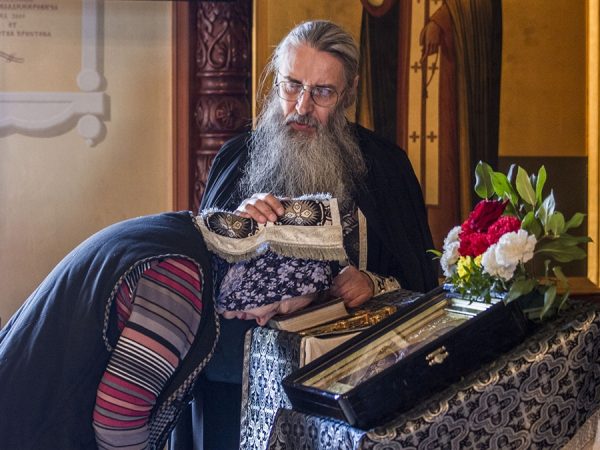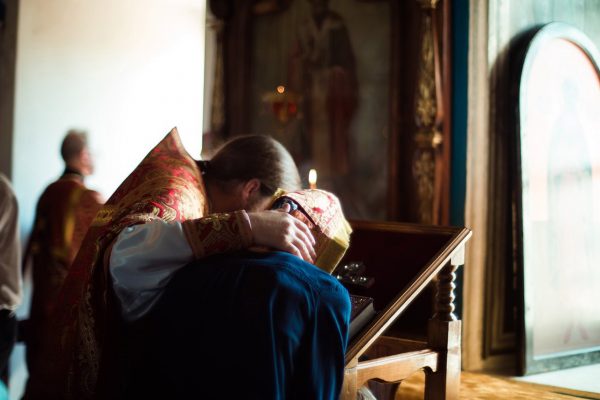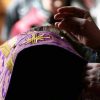When we think of`Confession, most of us think that it involves revealing our sins we have committed, expressing regret, and receiving forgiveness or absolution from the Church. There is much truth to this. But when we approach Confession solely on the basis of this foundation, I can certainly understand why people are reluctant to come to Confession. Some might be too ashamed to come because of what one may have done, and fear condemnation or rejection from the person who hears the confession. Or we may just think we haven’t done anything that bad that warrants confessing our sins. Could both of these attitudes be rooted in pride and arrogance? Nevertheless, I can see why some would be reluctant to partake of Confession if this how we primarily view it. I would like to suggest another way of looking at Confession that doesn’t ignore confessing our sins, but puts it into a different context, one that is victorious, and positive. I would like to begin with the words of our Savior to make my point. “Therefore whoever confesses Me before men, him I will also confess before My Father who is in heaven. But whoever denies Me before men, him I will also deny before My Father who is in heaven”. (Matthew 10:32-34) Confession is about resolve. Yes there are things we do that we regret; sins that separate us from Christ and His Holy Church. But Confession is about coming to one’s right mind and realizing as the Prodigal Son did, what he had at home when he was with his Father. So Confession is first about a resolve to return to Christ, to follow Christ; to confess Him before men and publicly state before the priest you want to follow Him, to do His will, and to obey His teachings. Confession is inevitably an act of victory over the devil and the fact that sin doesn’t have the hold over us the devil wants us to think it does. Why, because we are baptized! There is a baptismal nature to Confession that is expressed in the following prayer that is read after a person has confessed and just before the prayer of reconciliation or absolution is read:
In all these things which you have confessed you must henceforth be on your guard, for you receive a second Baptism, according to the Christian Mystery. You must make a good beginning, God helping you. But, above all, you must not take these things lightly, lest you become a cause of scorn to men, for these things are not befitting a Christian. But, through His Grace, may God help you to live honorably, righteously, and devoutly.
In Baptism, death is overthrown, sin is defeated, new life in Christ is bestowed on us. Prior to Baptism one also confesses the desire to be united with Christ and bow down and worship Him as “my King and my God.” This theme of confessing the Lordship of Christ is evidenced in the sacrament of Confession in the reciting of the Nicene Creed which is also said at every Baptism before anyone is baptized. In confessing the Orthodox faith as laid out in the Creed, we are confessing Christ before men. Even if we struggle with sins and habits in our life that have us repeatedly confessing the same things that separate us from Christ and His Church, each time we confess, we have won a victory in Christ. If we need to be forgiven “seventy times seven”, we come forward seventy times seven to be forgiven. Another dynamic to confession I want to discuss can be found in Chapter 5 of the gospel of Luke that was recently read in church and also in the icon of the Transfiguration of our Lord. The gospel reading of Luke concerns the event where the Peter and Andrew have been fishing all night having caught no fish. Jesus then tells them to cast their net into the deep and they catch an enormous amount of fish. Peter’s reaction to this is significant. He draws near to Christ and kneels before Him then says, “Depart from me for I am a sinner.” What a paradoxical response! He draws near to Him, yet tells Him to get away from him! During Confession we stand before an icon of Christ as we confess to Him. To draw near to Christ in the sacrament of Confession and to stand before His Holy Image, how can we not have this paradoxical response? To stand before someone who is truly human how can we not get in touch with what is inhuman in us? By gazing upon the icon of our Savior, are we drawn to Him because by gazing at Him we see something of ourselves being fulfilled in Him? Yet at the same time when we stand in His Light, the things that are not right in us get exposed. It is both a joyful yet fearful experience. This brings us to the Transfiguration of our Lord on Mt. Tabor. Peter, James, and John, are allowed to see Christ glorified. The experience is truly wonderful and Peter remarks, “Lord it is good for us to be here!” Yet when you look at the icon, all three disciples’ bodies are depicted in a disorderly, fashion. One is upside down, they can’t look directly at the sight of Christ glorified with Elijah and Moses. It as if their lives have been literally turned upside down! Confession is like coming to Mt Tabor to behold the image of our Savior and to remark like Peter, “Lord it is good for us to be here;” the same Peter who said; “Depart from me for I am a sinner.” Why? On Mt Tabor we find our true selves. We are allowed to see something of who we are called to be, that is truly wonderful. Yet the experience of being there exposes those things in our life that are not right and begs us to say, “Lord, have mercy on me a sinner.” How can we stand in the presence of holiness and not see what is lacking in us? But it is that very joy we encounter that draws us there!

Photo: IgorS/lifeisphoto.ru
Why do the majority of us not have this experience when it comes to Confession? Could it be that we lack the hunger and desire of Zacchaeus as described in the gospel of Luke? He desired to see Jesus and was determined to do whatever he needed to do in order to catch a glimpse of Him. Because he was short, he climbed the tree of humility which allowed him to see Jesus passing by; and Jesus noticed him and came to his home to dine with Zacchaeus. We don’t come to Confession to be condemned for our sins. We come to Confession to experience the love of Christ expressed between the Priest who hears the Confession and the one who comes forward. In Confession Christ acts to bring reconciliation and forgiveness much like He did when He forgave and did not condemn the woman caught in adultery in the gospel of John. According to the law He would have been justified in stoning her to death for her sin because He was without sin. Instead He did not condemn her but told her to “go in peace and sin no more.” Just before a person begins his or her confession the priest encourages the one coming forward “not to be ashamed or afraid” and to “tell me all that you have done.” Confession is place where we come to repent and to confess our desire to follow Christ. We receive a second baptism. It is a place where we confess discord but receive the Lord’s peace; where instead of condemnation for wrongdoing we experience forgiveness and reconciliation; and finally where we are reunited to Christ’s Holy Church.

















